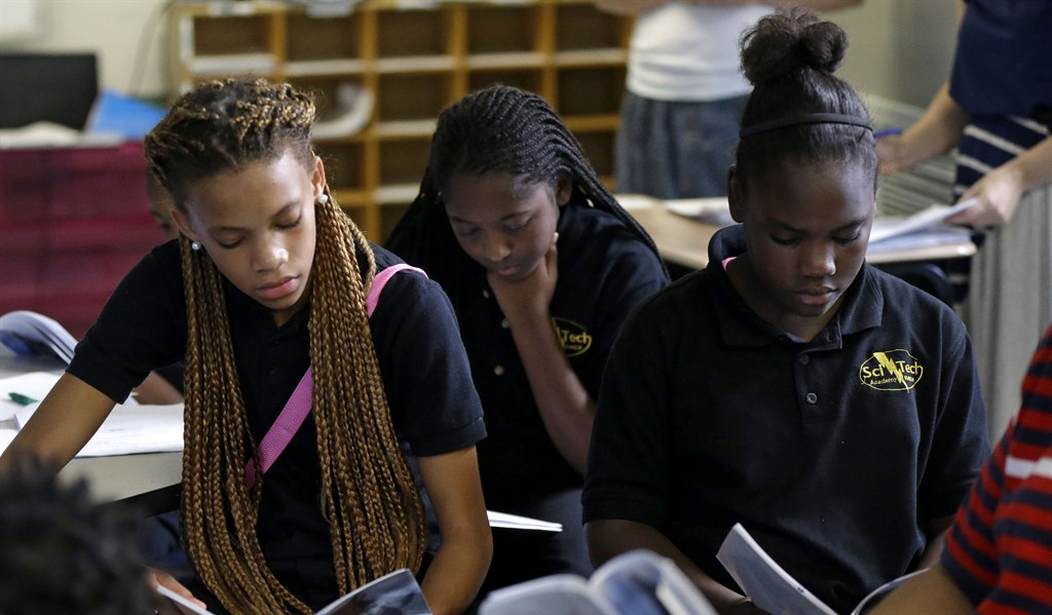Thanks to reforms implemented by Gov. Pat McCrory (R), North Carolina now assigns each of its public schools a letter grade, to help parents understand where their child’s school ranks relative to other schools across the state.
The grades, ranging from “A” to “F,” are released annually in the state’s North Carolina School Report Cards reportpublished by the State Board of Education. Like most other states, North Carolina used its own custom performance designation system before switching to the easy-to-understand A–F grading model.
This simple reform may not seem like it could contribute much to the education reform debate, but it actually matters a great deal. The nation’s education establishment has consistently and deliberately befuddled parents for decades with evaluation systems non-experts cannot easily understand. As a result, failing public schools often escape the criticism they deserve for delivering an inadequate service.
Under the previous system, parents were left confused about their children’s school performance, says Terry Stoops, director of research and education policy studies for the John Locke Foundation.
“North Carolina lawmakers selected a letter grade system because it was easier to understand than the previous school performance designation system,” Stoops said. “For example, low-performing schools were called ‘Priority’ schools, a term that had no meaning for the vast majority of North Carolinians. On the other hand, all parents comprehend what a ‘D’ or ‘F’ represents.”
North Carolina joins a growing list of states that have transitioned to a letter grade system for school performance reports. According to the Education Commission of the States, 14 states now assign or will soon assign letter grades to help citizens, especially parents, better understand how schools compare to one another.
Recommended
Unbelievably, there are opponents to this commonsense move toward transparency.
Opponents argue a system that utilizes letter grades will give parents the wrong impression about the potential progress made by their child’s local public schools and could unjustly punish schools in low-income communities.
“They’re going to be labeled as failing schools even if they’re working really hard and getting a lot of growth,” Rep. Deb McManus (D-Chatham) told WRAL.com when the reform was first put into place in 2013. “These are the schools that need our best teachers, and I don’t know how we’re going to get teachers to choose to go to a school that is getting a D or an F.”
“We have never believed assigning a single grade to a school makes much sense,” said Wake County, North Carolina Superintendent Jim Merrill to a local ABC affiliate. “Our parents understand there is much more to a school than one grade can reflect.”
This sort of reasoning is typical of the education elite who are simply uninterested in creating a transparent system that mandates accountability. One has to wonder, if school officials “never believed assigning a single grade to a school makes much sense” then why is it that those same schools assign single grades (per subject) to their own students? Does that fairly or accurately represent what a student knows?
Those who oppose the new letter grade evaluation system are trying to protect the established public education system and aren’t really interested in any reforms, no matter how successful they have been proven to be.
“Fundamentally, public school advocacy organizations feared that school performance grades would further erode taxpayers’ confidence in the public school system,” said Stoops. “These groups dismiss those who call for expanding school choice and other structural reforms because, in their mind, public schools are not failing. Few will agree that the system is working, however, when nearly 30 percent, which amounts to over 700 North Carolina schools, earn a ‘D’ or ‘F’ grade.”
For those who reject the need for simple, proven reform such as the recent changes made in North Carolina, transparency for parents and students will always take a back seat to protecting the interests of the failing but highly funded bureaucratic mess that is public education. Logic, compassion, and progress be damned.

























Join the conversation as a VIP Member